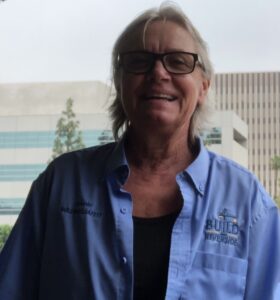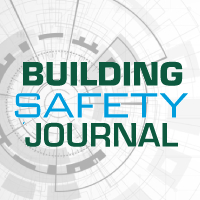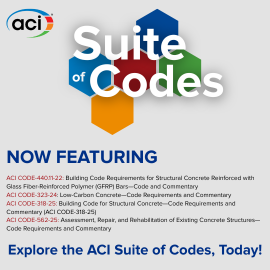
Masters of Code: Stefanie Svensson achieves the gold standard of code certification
 It’s considered the Ph.D. of building safety codes certification. The Master Code Professional (MCP) is the highest level of designation the International Code Council offers and is the “gold standard” for demonstrating proficiency in the code profession. The Code Council has certified thousands of individuals, but only a small select number have attained this high level of achievement: just over 900 MCP professionals worldwide. Their achievements are a benefit to the code enforcement profession as well as their communities.
It’s considered the Ph.D. of building safety codes certification. The Master Code Professional (MCP) is the highest level of designation the International Code Council offers and is the “gold standard” for demonstrating proficiency in the code profession. The Code Council has certified thousands of individuals, but only a small select number have attained this high level of achievement: just over 900 MCP professionals worldwide. Their achievements are a benefit to the code enforcement profession as well as their communities.
To obtain this level of certification requires and demonstrates a commitment to the profession, diverse knowledge of codes and a high level of self-initiative. Stefanie Svensson is the latest to join the elite group of Master Code Professionals. In this exclusive feature for the Building Safety Journal, we asked Stefanie Svensson to share her experience on obtaining the MCP designation, highlights of her professional career and any insights or advice she has concerning the industry.
Stefanie Svensson
Senior Building Inspector
Community & Economic Development
Riverside, California, United States
International Code Council member for 16 years
BSJ: What led you to pursue and obtain MCP certification?
Svensson: When I first became an inspector with the city of Lancaster working for JAS Pacific, I was studying for my certifications and I came across the designation. It was something I hoped to achieve in my career and a goal that I set for myself. JAS Pacific was very supportive as far as my obtaining certifications. At that time, being fully combination was my focus and my goal obtaining the MCP was what I wanted to achieve in the future. I became fully combination in just over a year and JAS Pacific placed me with the city of Santa Monica; that was around when the economy took a huge hit and construction in many cities became nonexistent. I continued to work for the city of Santa Monica, and they hired me once the economy picked back up as a permanent employee. I continued to get certifications while in Santa Monica with their support. After about eight years, I decided it was time to work on the goal that I had of achieving the MCP when I first became an inspector.
BSJ: How did you study and prepare for the many exams you took as a part of your MCP designation?
Svensson: I self-studied for all my certifications. It is not about memorizing the answers, it is about being able to navigate the code books. Finding the answers to the questions and knowing where to look within the codebook. Learning the table of contents and index is very important as is reading and understanding the code. Memorizing code sections, I do not feel, is a good idea because code sections get moved around. Add Smith from JAS Pacific was working at the city of Lancaster when I got hired with JAS. I used to meet with him before work to study for my building inspector certification. He also had a lot of questions like the handbooks from when he used to teach classes. I would look up every answer in the book and write down the code section. When I started going for the MCP I got all the handbooks through ICC, which I found very useful. I followed the same process; regardless of whether I knew the answer, I would always look it up. Being able to do the practice tests from the handbooks that I got through ICC was also very helpful and again looking up every answer.
BSJ: What does achieving the prestigious MCP status mean to you?
Svensson: It is an absolute honor to be a part of such an elite group. To realize my dream after so much hard work cannot even be described. I worked very hard over many years to achieve it. I consider it the equivalent to a degree and could not be prouder of myself for the accomplishment of obtaining the MCP. To obtain it, and have the support and respect from all my peers, is awesome. There are not a lot of women who have achieved the MCP. That is what I love so much about my job; it is not about whether a person is male or female, it is about one’s knowledge and how well you do your job. Hopefully, I inspire other women to go after and achieve the MCP.
BSJ: How would you describe the value or benefits that have come with the recognition of your MCP status?
Svensson: It brings respect and recognition from my peers for the time and effort it takes to obtain the MCP. Also, for the knowledge I have acquired obtaining my certifications. The MCP is like a degree and will bring value as I move up in my career. I am currently with the city of Riverside as a senior building inspector and my being highly certified is part of the reason they hired me. I left Santa Monica to be closer to home. Now I can say the city of Riverside has its first Master Code Professional. Hopefully, not the last. We have a good group.
BSJ: What advice would you offer to those who are considering pursuing an MCP designation?
Svensson: Sometimes it can seem like a daunting task, but you just need to stay focused and just know that if you take it one step at a time, one certification at a time, you too can realize your dream. It can be tough balancing work, family and life in general. It takes a lot of dedication, but the result is so worth it. Developing a system in how you study is so important, and realizing that if you do not pass the test the first time do not get discouraged. It is perseverance that pays off.
BSJ: How long have you been in the industry?
Svensson: Thirty-plus years.
BSJ: What major changes have you seen?
Svensson: I have seen many changes. To see the changes with the structural integrity of buildings and adding all the shear components to structures was a huge change. When I was first obtaining my certifications, it was with the Uniform Codes, so when we went from the UBC to the IBC, seeing how sprinklers have reduced the requirements for fire-rated assemblies such as corridors, where they are no longer required in many instances. Seeing the codes evolve with changes as far as electrical goes with switchgear, available fault current and series rating requirements, signage requirements for arch flash, also arch fault requirements keep getting added to more and more parts of houses. Energy efficiency has evolved tremendously with the building envelope, appliances and equipment becoming more efficient. Accessibility has had major changes and keeps evolving, making all new buildings usable for everyone and requiring existing buildings to remove barriers. Bringing the CBC in line with the ADA as far as 11-B was huge and needed. When I first became an inspector, accessibility was not as much at the forefront as it is now, which is so important; that people with disabilities are able to lead a normal life as well. Another major change we will see in the future is the COVID pandemic; it will bring about many changes in how we do business within building and safety. We have been launched into mobile apps for inspection, e-plan submittals, zoom meetings and virtual inspections, to name a few.
BSJ: What excites you about the future of your industry?
Svensson: Technology and watching building and construction change with the new concepts, materials and seeing easier ways to manage projects. Designs are becoming more creative in the sense of utilizing all parts of the code, making buildings safe but also more cost-effective. We are moving rapidly into the future using technology to go paperless, and at job-sites instead of carrying plans, they have iPads for inspection. I love to learn, to be challenged and to have a job where it never gets boring. There is always something new to learn or a problem to solve. It is very exciting.
BSJ: What is one piece of advice that you would give to those starting out in the industry?
Svensson: Learn as much as you can from those around you with more experience. Have confidence and never be afraid to ask questions. It is the contractor’s responsibility to know their project. Always remember we are servant leaders, meaning we serve the public by providing excellent customer service. We lead the public through the process, which can be very daunting — from the inception of their project, no matter how large or small, to completion — while obtaining code compliance. Most of all enjoy, it is a truly challenging yet very rewarding career to enter. It is all about teamwork.
BSJ: Building safety is the focal point of our mission here at the Code Council. What is the importance of building safety to you? How has ICC helped you in your career and commitment to public safety?
Svensson: Building and safety are critical to keeping people safe, requiring buildings to be safe yet usable. Our codes were driven by disasters in the past and are forever evolving with the changing of our world. Means of egress, fire resistivity, occupancy, allowable height, types of construction, accessibility, MEPs, energy efficiency and so much more goes into what we do and what we need to know as inspectors. We inspect to minimum standards; in other words we do not inspect what we would like to see. We inspect what is required by code. The pandemic has put a whole new challenge in front of us. How to keep staff and the public safe while making sure buildings are built, inspected and approved per the code and approved plans and documents. ICC is putting on webinars throughout the pandemic to bring building departments together to discuss what works and what does not. The ICC has been a big part of my career whether it be training, getting books off the site that assisted with my progress as an inspector, or obtaining my certifications.
BSJ: Obtaining all those ICC certifications is quite an accomplishment. What are you going to do now that you have achieved this goal?
Svensson: I will now work on getting the balance of my plan check certifications, the building official certification, and I will continue to learn and grow. In our line of work, it is forever evolving so I look forward to the next challenge as I make new goals. That is what is so great about having a job I love; it never gets boring because it is so challenging and rewarding.
BSJ: Thank you, Stefanie, and congratulations. You have definitely been an encouragement to us all in your pursuit of excellence.
To earn the Code Council’s elite MCP designation, a candidate must first pass 10 core Code Council exams plus a number of elective Code Council exams. Typical Master Code Professionals hold 17 or more Code Council certifications. The Master Code Professional designation requires certified individuals to complete an additional 60 hours of Continuing Education Units every three years to maintain active status.
“The Master Code Professional certification is the pinnacle of all Code Council certifications, representing a level of effort, knowledge, and dedication that elevates not only the individual achieving it but the code official profession as a whole,” said Code Council Chief Executive Officer Dominic Sims, CBO.
Master Code Professionals are typically responsible for all technical and management aspects of code enforcement with duties that range from the management of a code enforcement department to the supervision of inspectors and plan reviewers.
“Congratulations to Stefanie on achieving this important and significant accomplishment,” said Autumn Saylor, program services manager of the Code Council’s Assessment Center. “I challenge and encourage all code professionals to strive for this level of achievement, and I look forward to congratulating more Master Code Professionals in the future.”
To learn more about how you can join this elite group and let us help you open the door to increased professional challenges and career advancement, click here.






